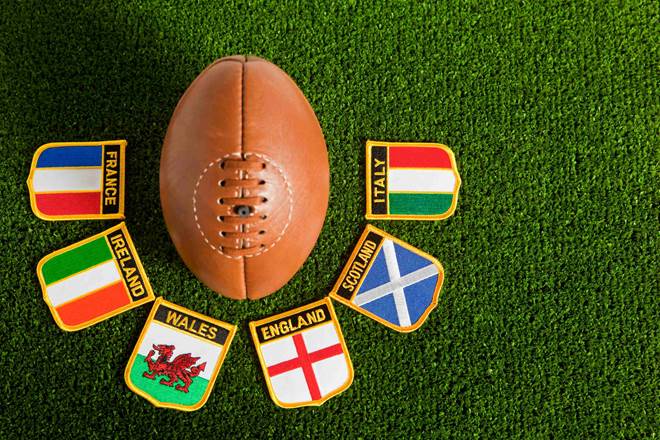Forget soccer. Every February and March, Europeans become obsessed with one thing only: the Six Nations.
Founded in 1883, the Six Nations is the oldest rugby competition in the world. Six teams — England, Ireland, Scotland, Wales, France and Italy — compete in five rounds of rugby union, with the winning country taking home the Championship Trophy.
Rugby union is similar to American football, but with a few key differences. For example, there are 15 players on the pitch instead of 11, and anyone can play offense or defense.
Whether you’re a rugby fan or not, it’s hard not to get swept up in the Six Nations fever — especially if you’re visiting Europe over this period.
Pour yourself a Guinness and read our quick guide to the Six Nations rugby championship.
Image Credit: Getty Images, stocknshares
When is the Six Nations?
Every year, the Six Nations men’s championship starts on the first weekend in February and finishes by the end of March. The women’s Six Nations takes place just after, beginning in March and culminating in April.
Where is the Six Nations held?
Matches are spread across all six countries, with teams alternating between home and away every year.
In 2025, the Six Nation venues will be: Twickenham (England), Aviva Stadium (Ireland). Murrayfield (Scotland), Principality Stadium (Wales), Stade de France (France) and Stadio Olympico (Italy).
What is the format of the Six Nations?
Everything kicks off on the first weekend in February. Each team plays every other team once, which works out as 15 matches in total. The results are tallied up on a point system: 4 for a win, 2 for a draw, and 0 for a loss.
Extra points are awarded for scoring four or more tries in a match (1 point), losing by seven points or fewer (1 point) and winning all their games (3 points). The team with the most points wins the Championship Trophy.
There are a handful of other trophies up for grabs, including the Triple Crown — which is awarded to England, Scotland, Wales or Ireland if one nation defeats all other three.
Image Credit: Getty Images, Photo and Co
What is the Six Nations Rugby 2025 schedule?
In 2025, the men’s Six Nations will start on Friday 31 January with France taking on Wales at the Stade de France at 8.15pm GMT.
The final match is scheduled for Saturday 15th March at 8.00pm GMT with France battling Scotland at the Stade de France.
Events always take place on a Friday, Saturday or Sunday, so there’s no need to skip work to catch one of these matches. Find details of the date and time for each match on the Six Nations website.
The women’s Six Nations schedule for 2025 is yet to be released.
How does the women’s Six Nations differ from the men’s?
It’s pretty much the same. Over 100 years after the men’s tournament was first founded, the women’s Six Nations was launched in 1996. It has taken place every year since.
Matches are played on the same pitch as the men with the same rugby union rules. You can watch all of the matches live on BBC iPlayer.
Image Credit: Getty Images, Photo and Co. Image Location: Spain
How to get tickets to the Six Nations
Each country has their own ticket sites for their home and away events — so no single website exists for all te matches, unfortunately.
Head to the Six Nations website where you can find a link for each country’s ticketing website, plus information on securing those coveted seats.
Book tickets in advance — they are in serious high demand.
How to get to the Six Nations events
Taking the train is undoubtedly the best way to get to Six Nations events. With up to 82,000 people attending each match, you don’t want to attempt to drive anywhere near these jam-packed stadiums.
With Trainline you can easily book train tickets to the nearest stadium station and also receive minute-by-minute service updates. Plus, you’re not just limited to one country: Trainline operates all over Europe, so you can hop on a train in London and arrive in Paris with just a few clicks on the app.
Header Image Credit: Getty Images, stocknshares



